Building Better Habits: Personal Growth through Experimenting with Self-Change
By Melissa Moran ’25
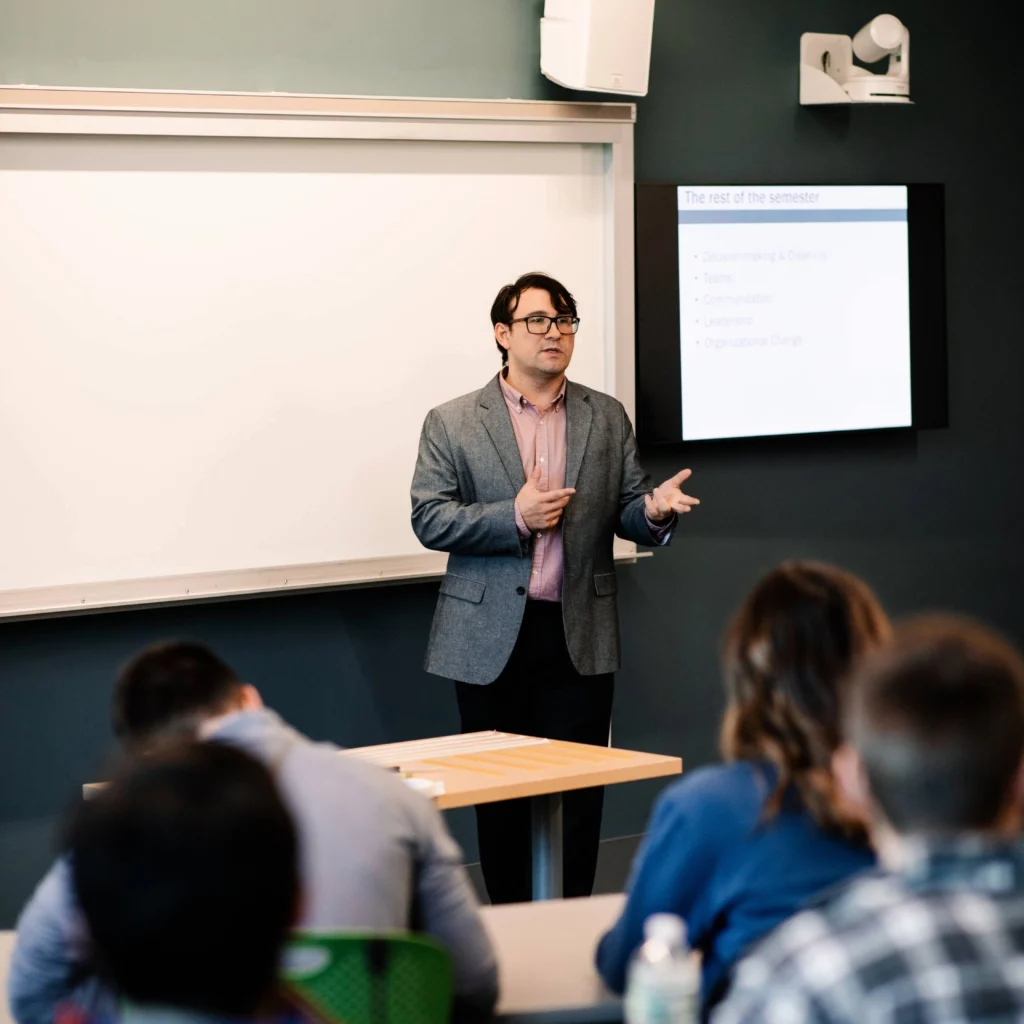
In Experimenting with Self-Change, a course taught by Christopher Lyddy, Ph.D., associate professor of management, seniors have the opportunity to reflect on and experiment with becoming their best selves. By developing deeper self-understanding and connecting to their personal passions, they try to build the capacity to excel tomorrow by thriving a little bit more today. The hope is they will experience beneficial short-term changes in personal well-being and professional effectiveness while developing the long-term capability for personal growth.
The major goal of the course is to conduct experiments in building better personal habits. In this course, instead of a business case approach where students focus on understanding someone else’s perspective, they learn to manage by reflecting on their own thoughts and actions. By applying the psychology of habits, learning, self-control, and personal growth to their own selves, they clarify how and why they are locked into current habits that don’t align with their best selves. Then they can experiment with changing those habits by crafting interventions.
One of the most popular topics has been trying to reduce problematic digital habits, like excessive smartphone and social media usage. Lyddy has been impressed with students’ awareness of these powerful habits and their ability to devise and test effective self-management approaches. “What’s so cool about this is that my students are figuring out, in their own lives today, how to better manage these very addictive systems,” Lyddy said. “They recognized these challenges, and figured out how to make measurable progress on these behaviors. The impacts often seem dramatic, helping them with sleep, stress, anxiety, self-esteem, impulse control, procrastination, and much more.”
Experimenting with Phone Habits to Boost Well-Being and Productivity
Some students adopted digital intervention strategies that involved changing phone settings. Some were effective; Jackie Carden ’25 simply blocked herself from using apps before bed, in which she observed improvements in both sleep quality and quantity, which positively affected her productivity and overall mood.
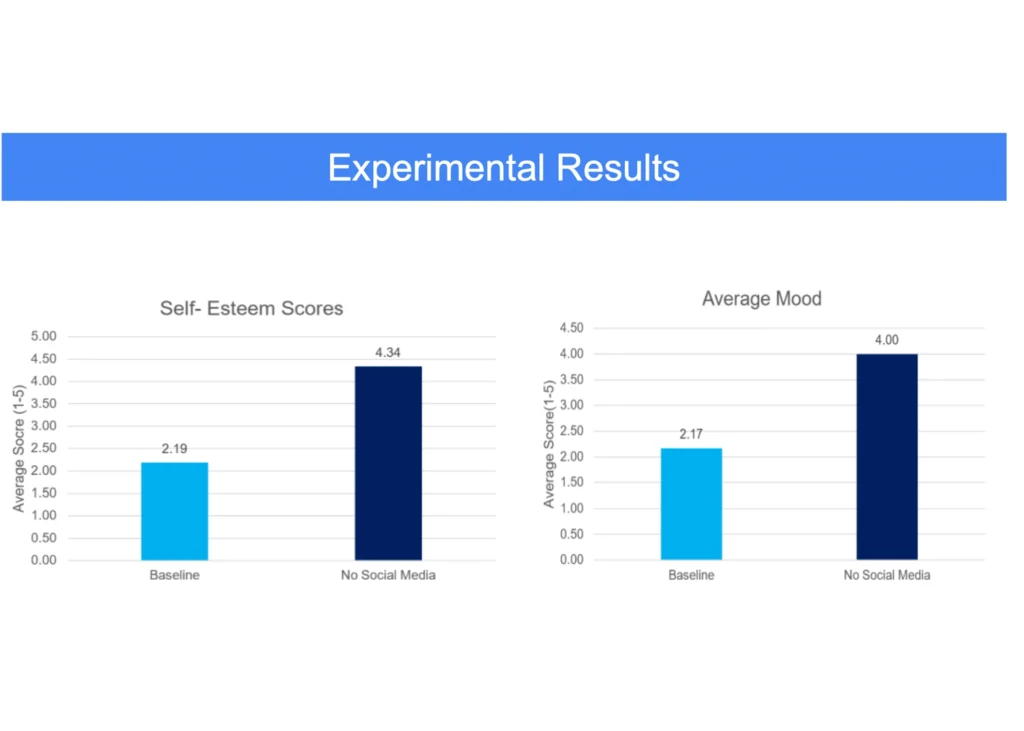
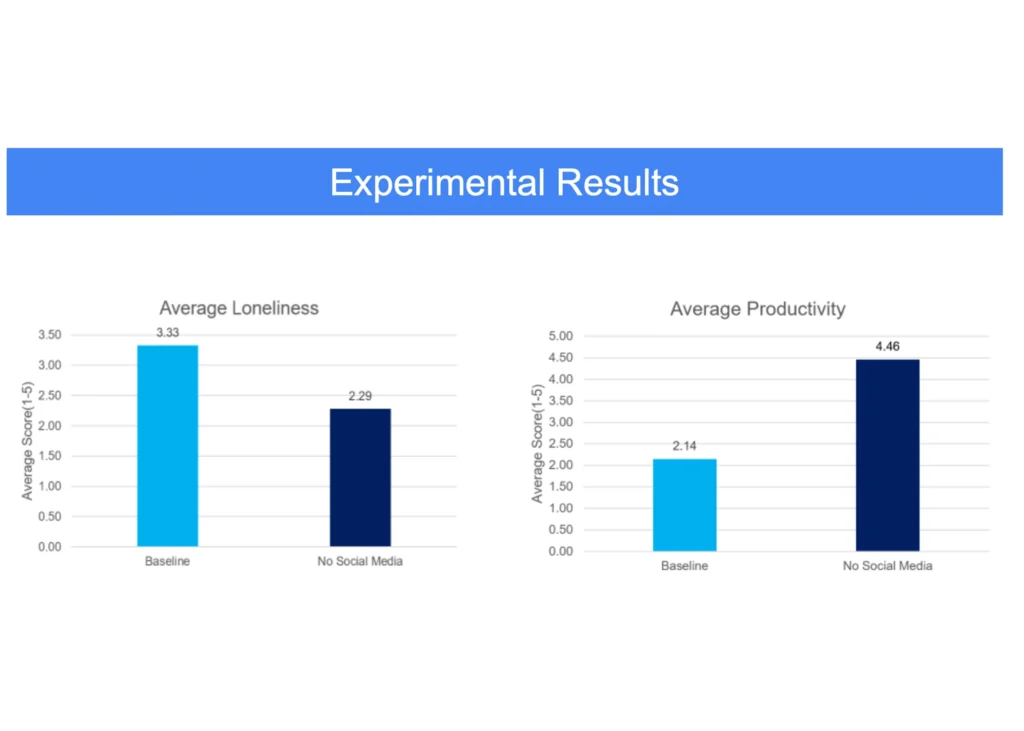
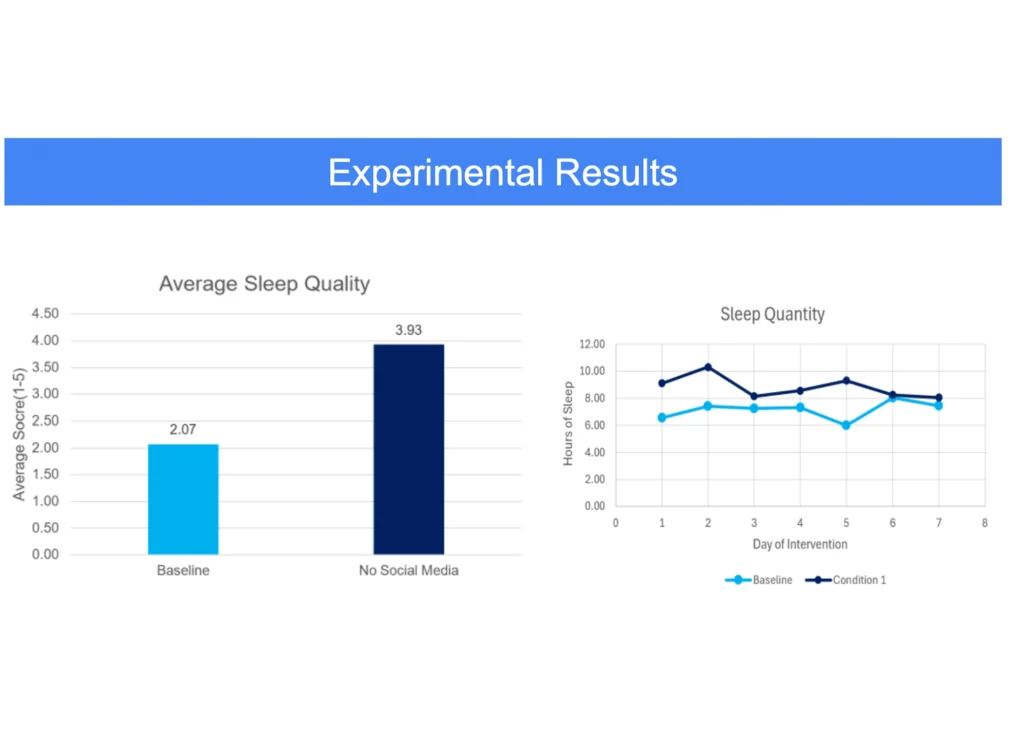
“The decrease in social media allowed me to focus on myself and my priorities,” Carden said. “It boosted my self-esteem by reducing the habit of comparing myself to people online. It helped me recognize where I am in life and find peace with it. The experiment was powerful, as it forced me to realign my time with my goals in life.”
Carden was able to see effective results in her studies, but Kate McDonald ’25 was shocked by the dramatic positive effect the study had on her mood, productivity, and self-esteem. McDonald designed her interventions into two conditions: limiting one certain app to one hour per day, and limiting all social media to under an hour total. After just a few weeks of experimenting, baseline numbers in her mood, self-esteem, and productivity all more than doubled. During the experiment, McDonald realized how easy it was to limit her phone time to under an hour per day, and if she keeps up with this trend, her heightened well-being will be sustained.
“While the project was simple, it did push me out of my comfort zone and encourage me to challenge deeply established habits,” McDonald said. “As it went on, I found it easier not only to curb my social media habits but also was able to form new ones like spending more time exercising.”
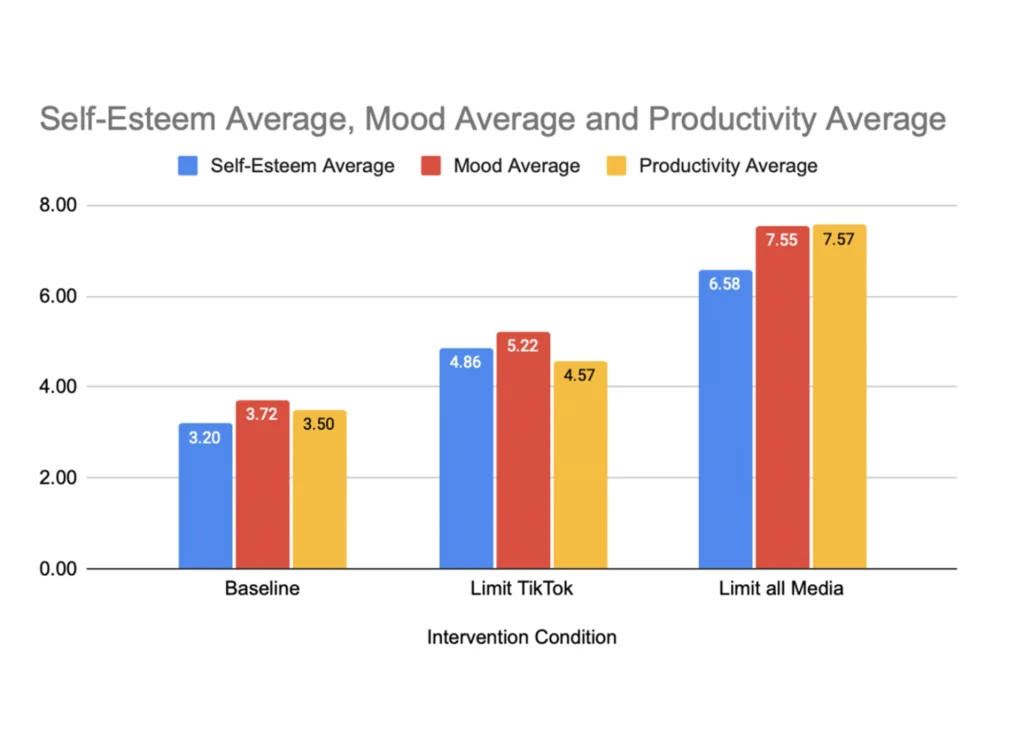
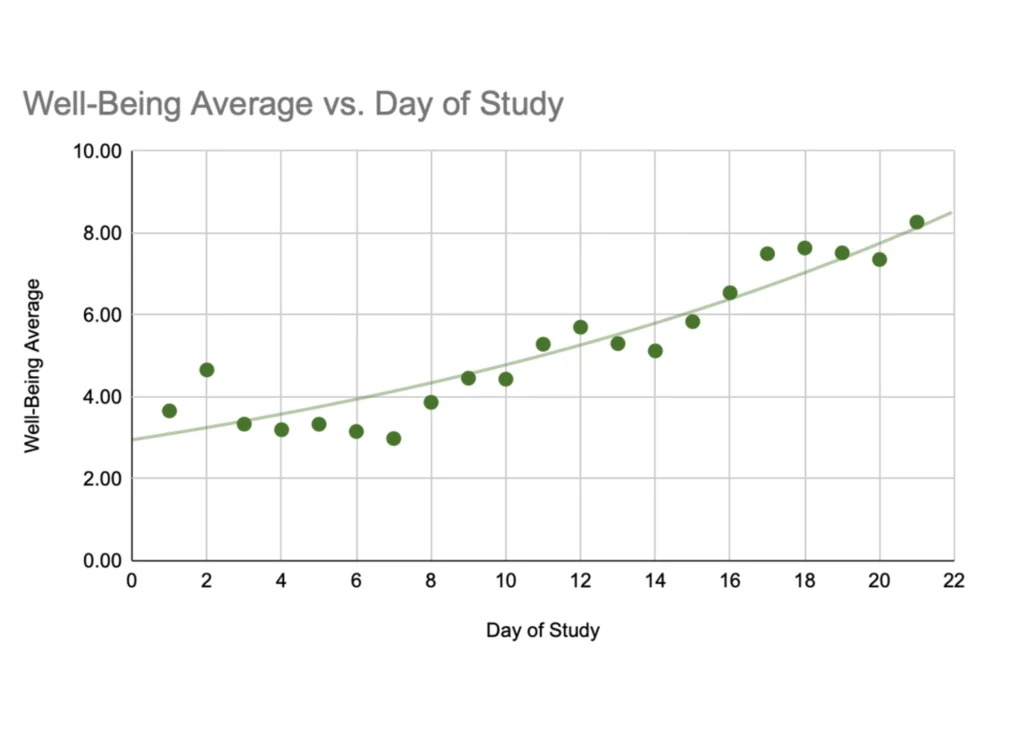
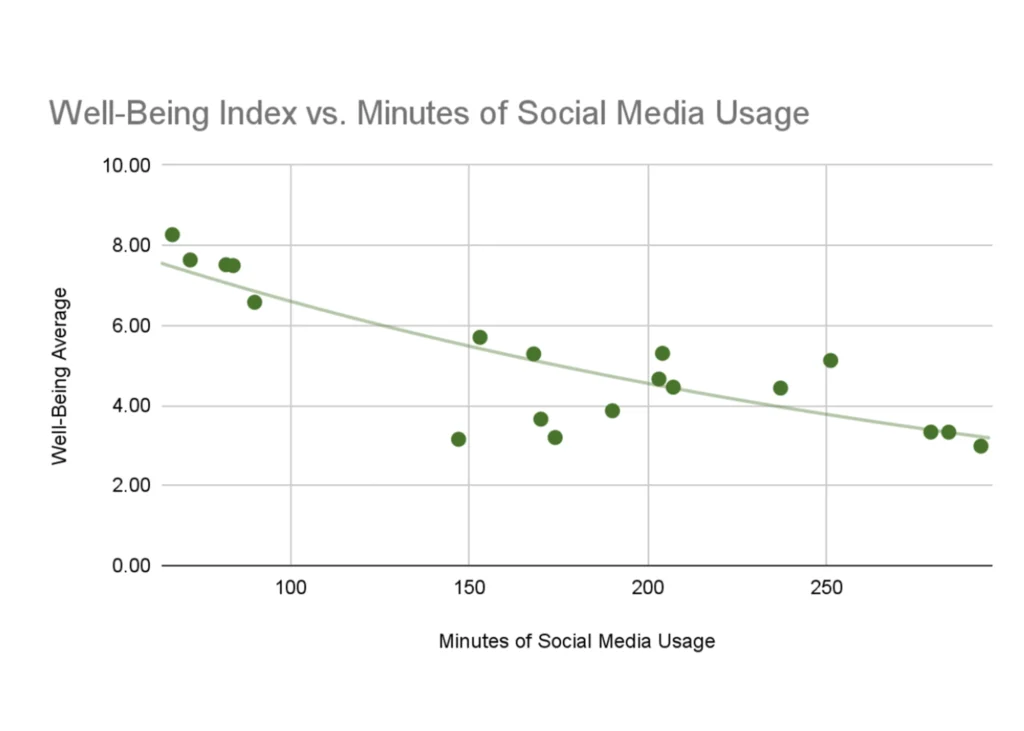
But as with many managerial interventions, some changes failed. A large student team that included Sheila Green ’25 found that putting phones on Do Not Disturb while working had no beneficial effect.
Still, this also clarified how valuable physical intervention strategies could be. Green’s team also tested two other strategies — putting phones away physically while working, and moving to quieter study spaces like the library — and found these had far better results. This led the team to experience much lower procrastination and higher engagement. The main takeaway from the study was that students were able to identify which self-management strategies were effective and which were not.
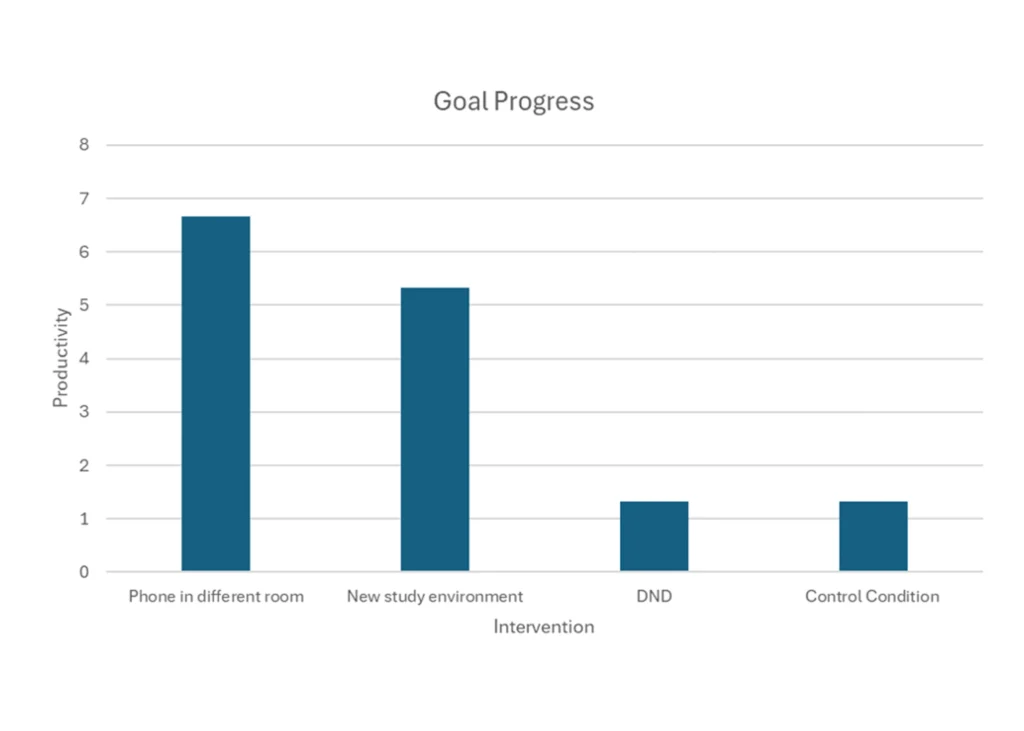
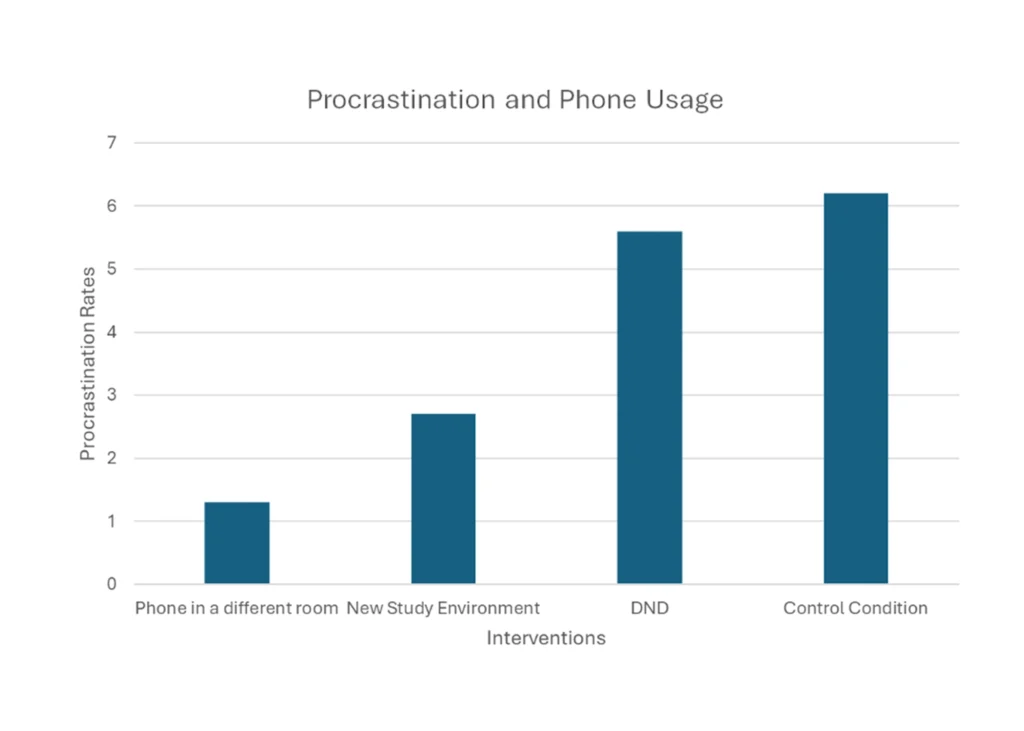
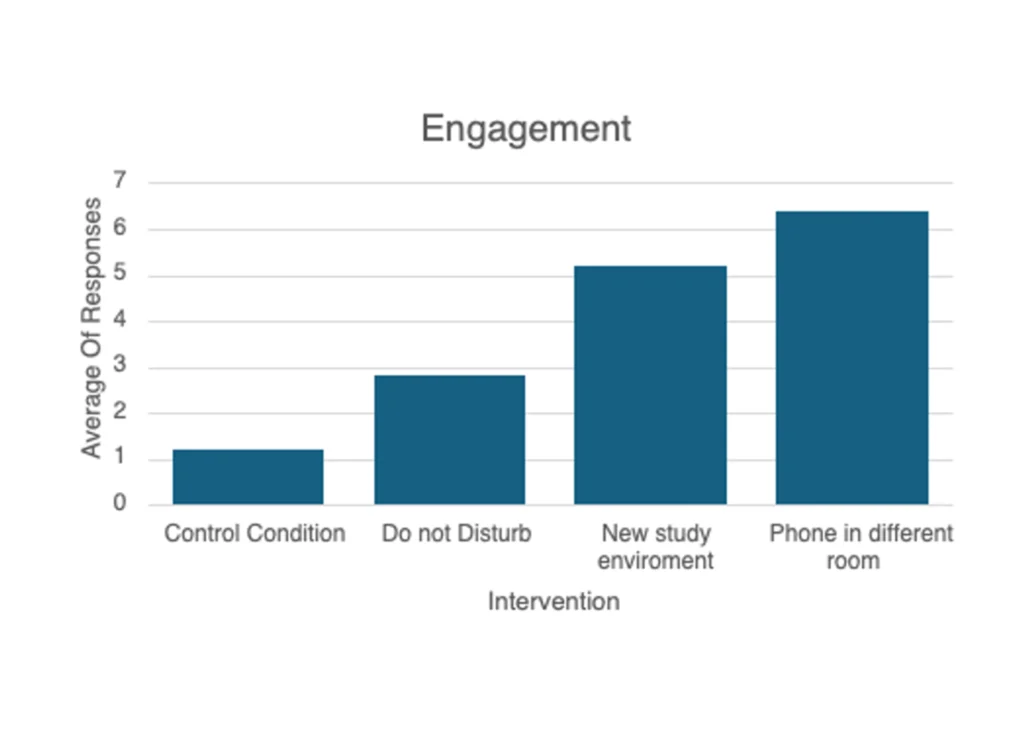
Transforming Habits for Lifelong Success and Growth Beyond the Classroom
The lessons learned in Management 414 extend far beyond the classroom. Seniors like Carden, McDonald and Green applied the insights gained from their experiments to reshape their personal habits and improve their self-management, not only crafting a foundation for immediate success but also developing the skills necessary for lifelong growth. The ability to identify and change habits, self-regulate behavior, and adapt to new challenges is invaluable, whether they are tackling future professional endeavors, navigating personal relationships, or managing the complexities of an ever-evolving world.





